Recovery Focused Model and Healthcare Practices for Mental Health
VerifiedAdded on 2023/01/11
|7
|610
|43
Presentation
AI Summary
This PowerPoint presentation addresses the enhancement of mental illness recovery through healthcare practices, focusing on the recovery-focused model of care. It begins by defining recovery and emphasizing its personalized nature, highlighting the goal of supporting individuals to achieve their goals and improve their lifestyles. The presentation then introduces the recovery-focused model, which prioritizes building resilience, self-esteem, and identity. It explains the model's strength-based approach and its emphasis on empowering individuals to move forward, set goals, and engage in meaningful activities. The presentation also discusses the importance of this model in improving mental health, outlining the four key factors: good relationships, satisfying work, personal growth, and a supportive living environment. The model's layered approach, which includes personal recovery characteristics, recovery strategies, and a supportive network, is also detailed. The presentation concludes by mentioning other applicable recovery models, like the conceptual model of recovery, and includes a list of references using APA 7th edition style.
1 out of 7
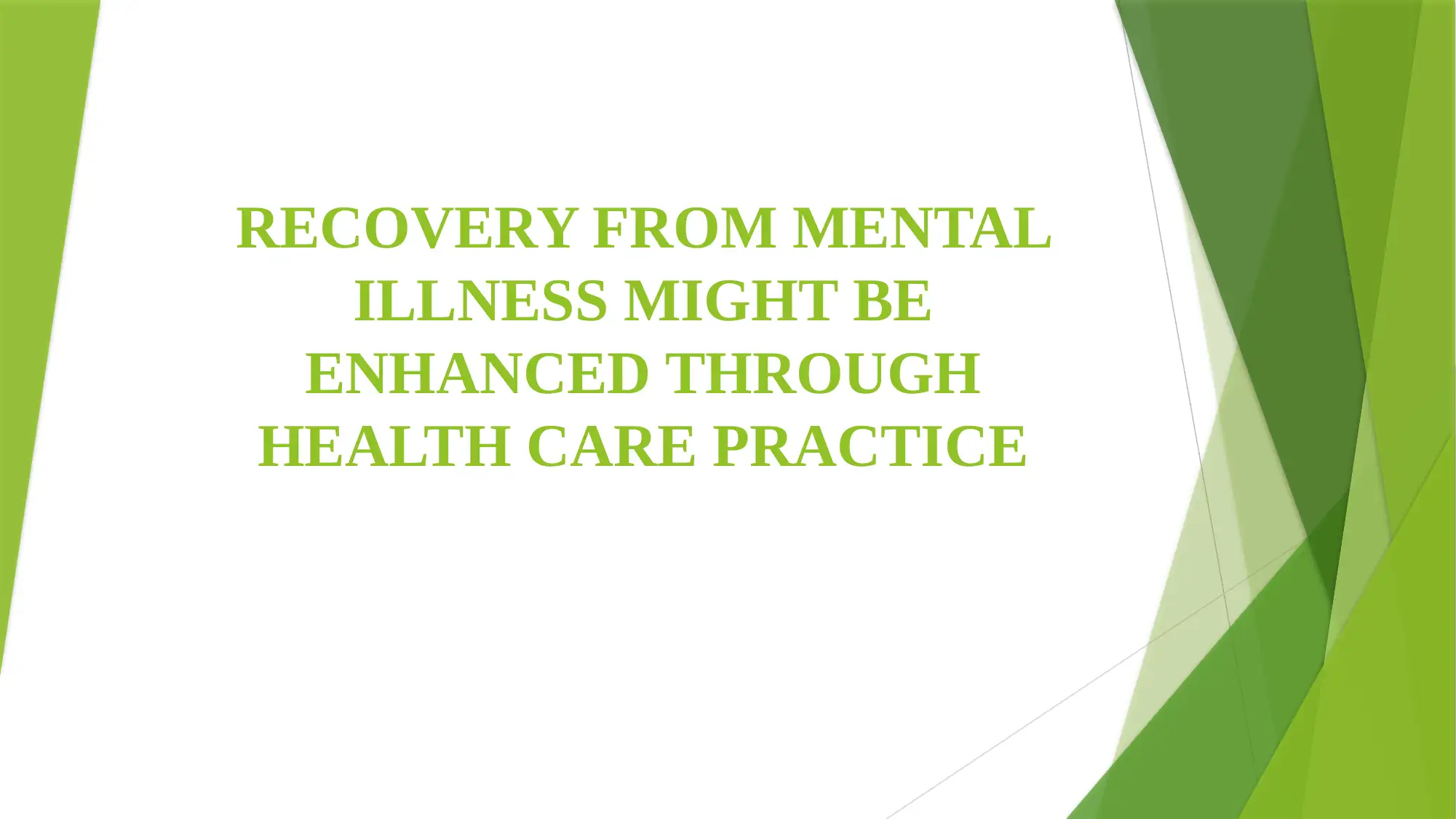
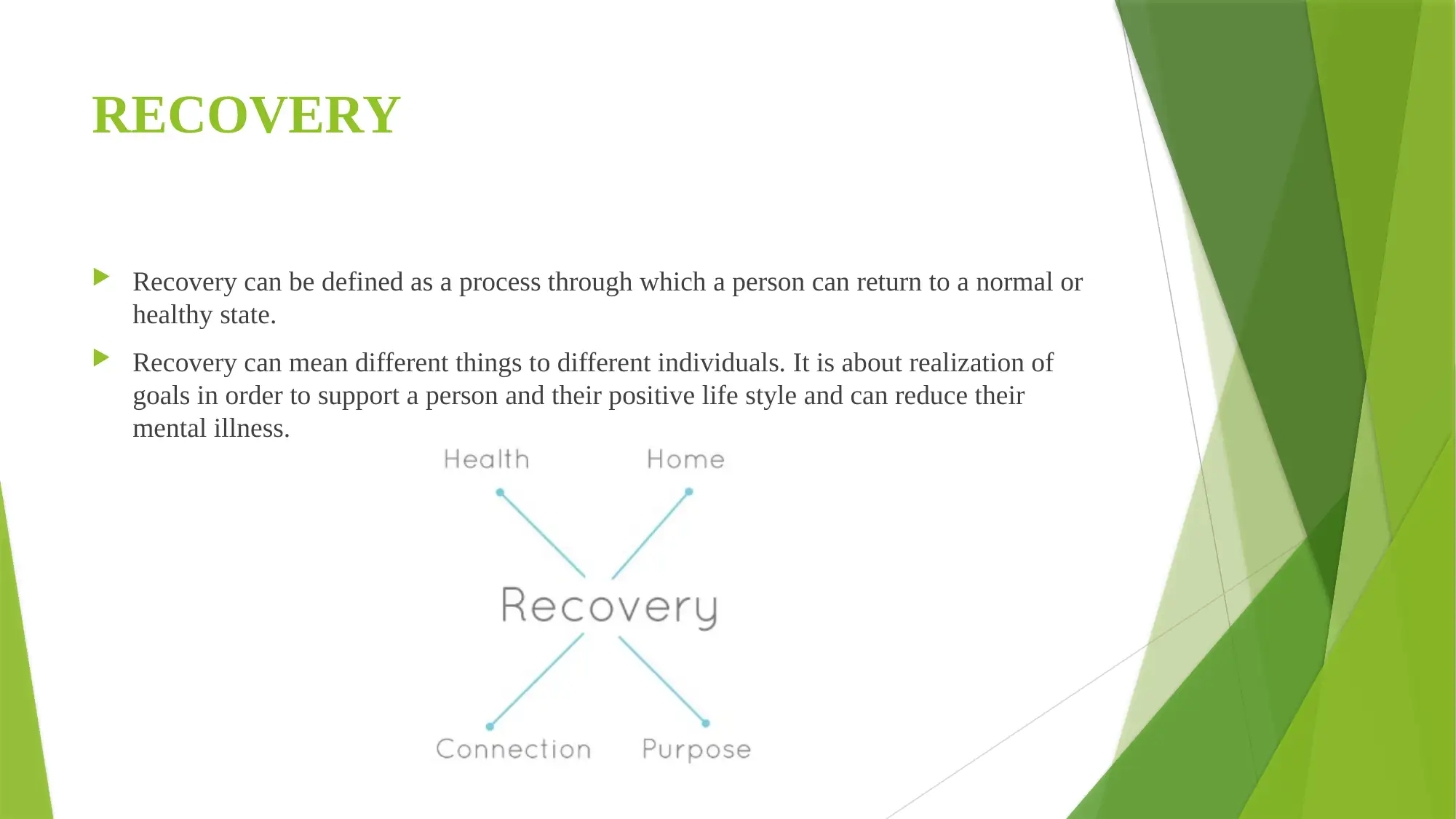
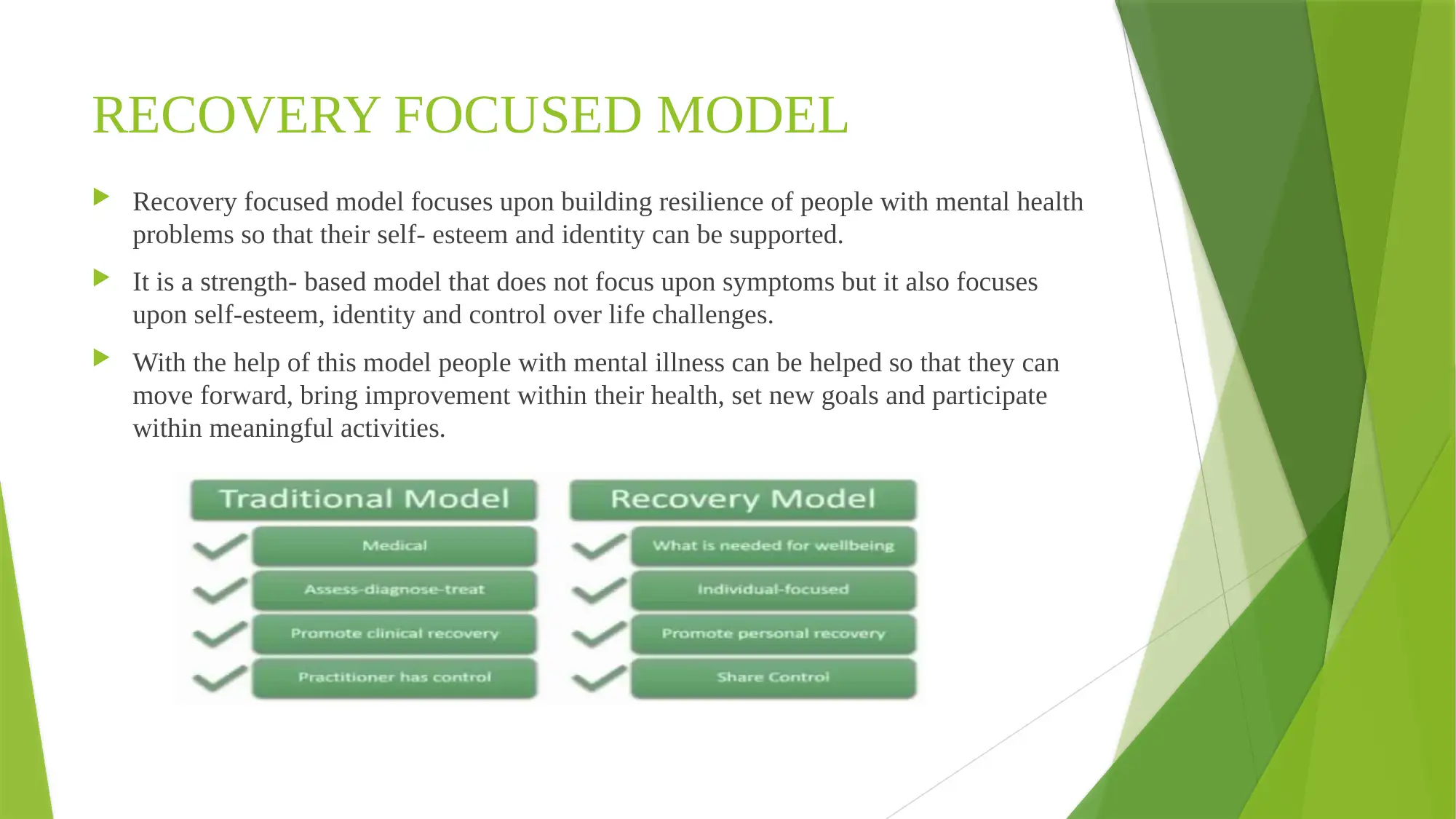

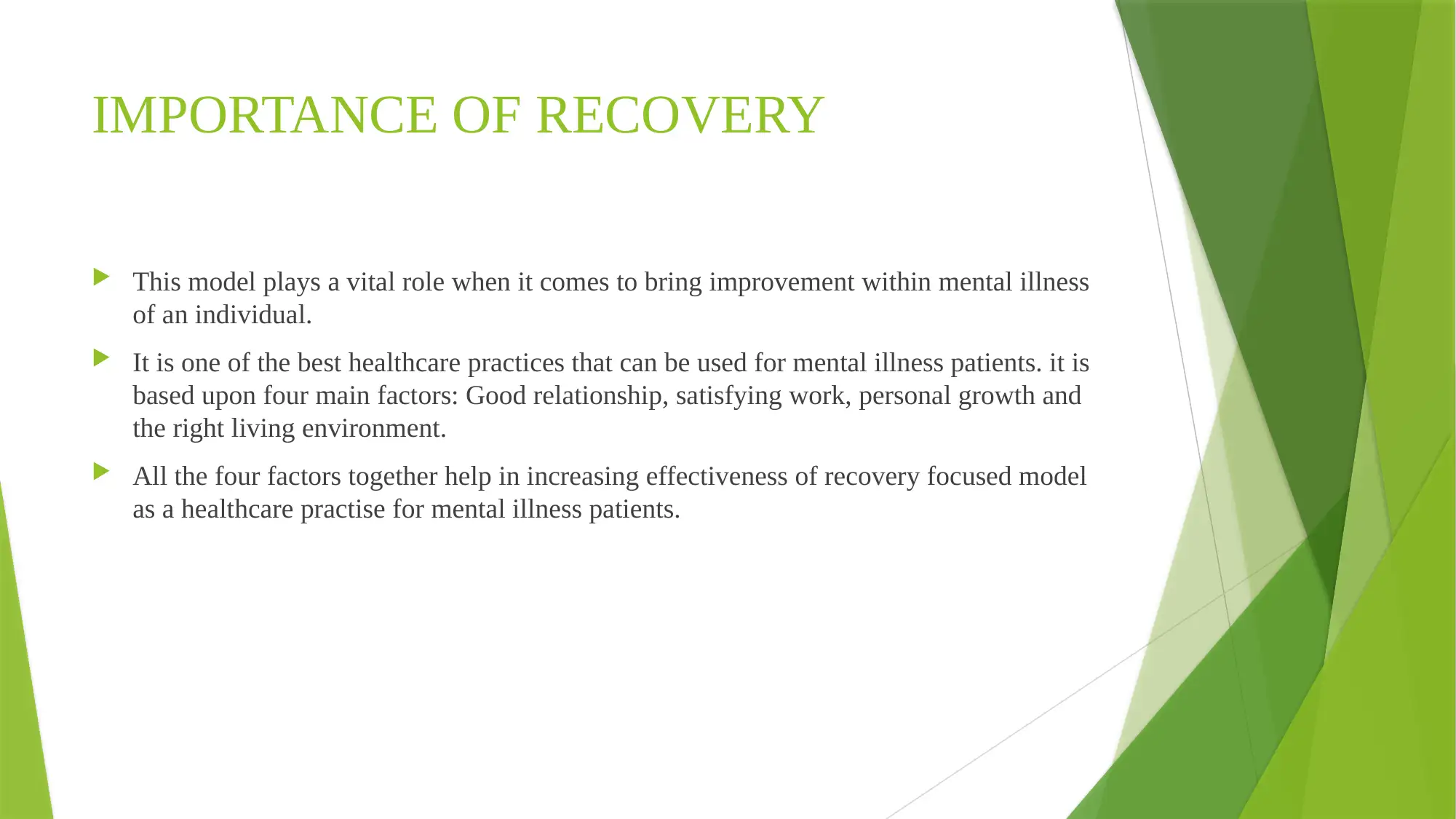
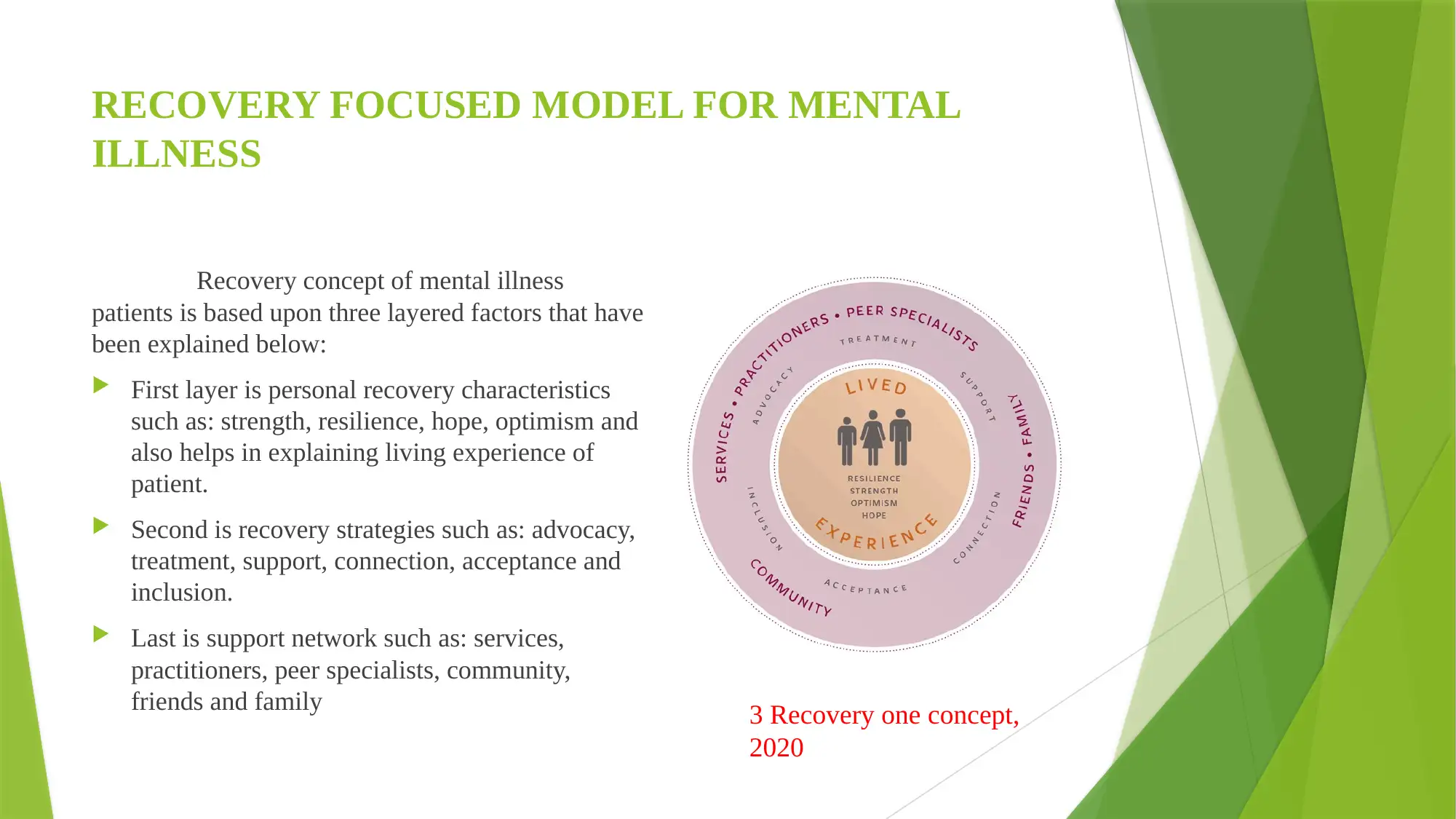
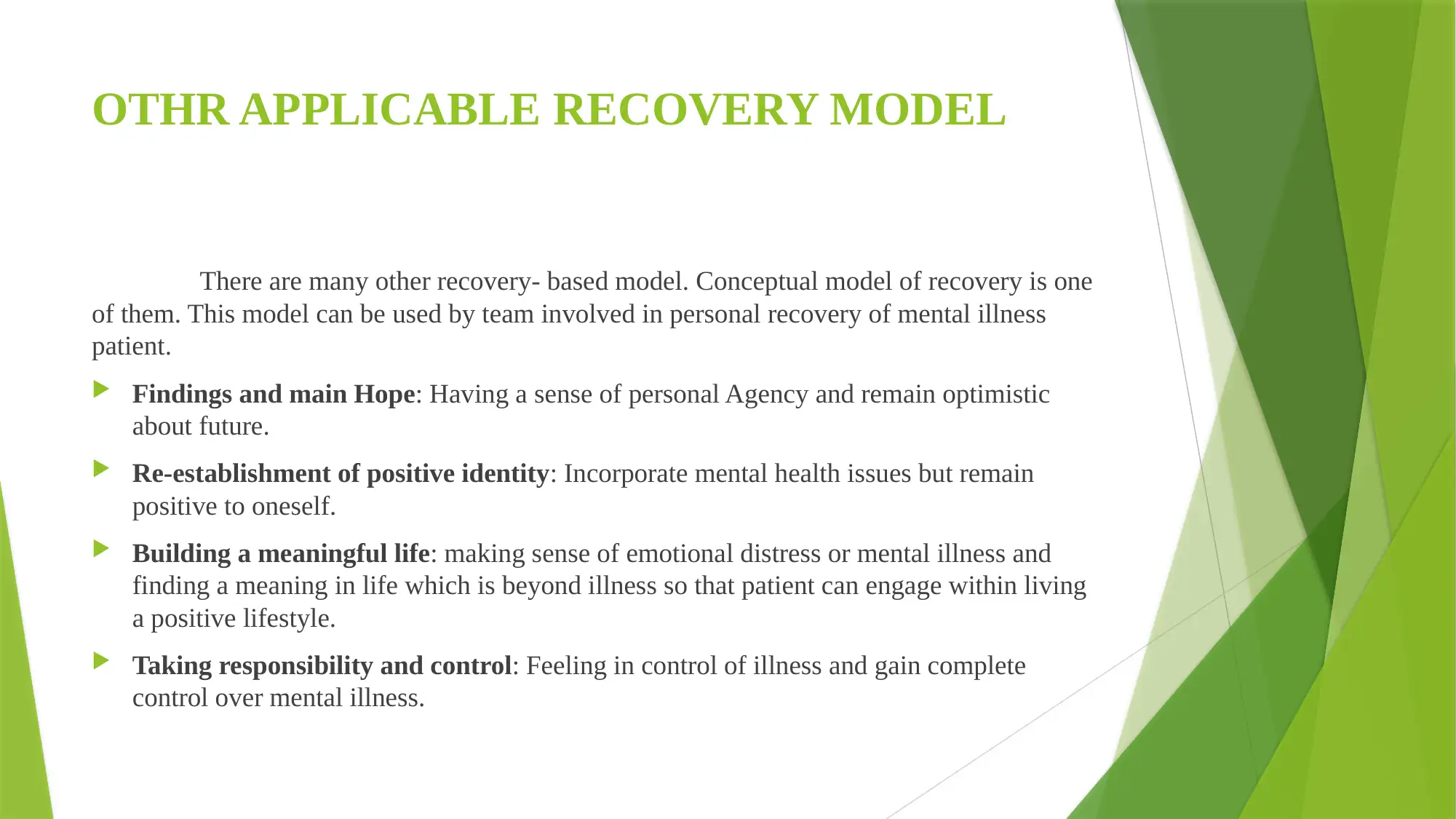
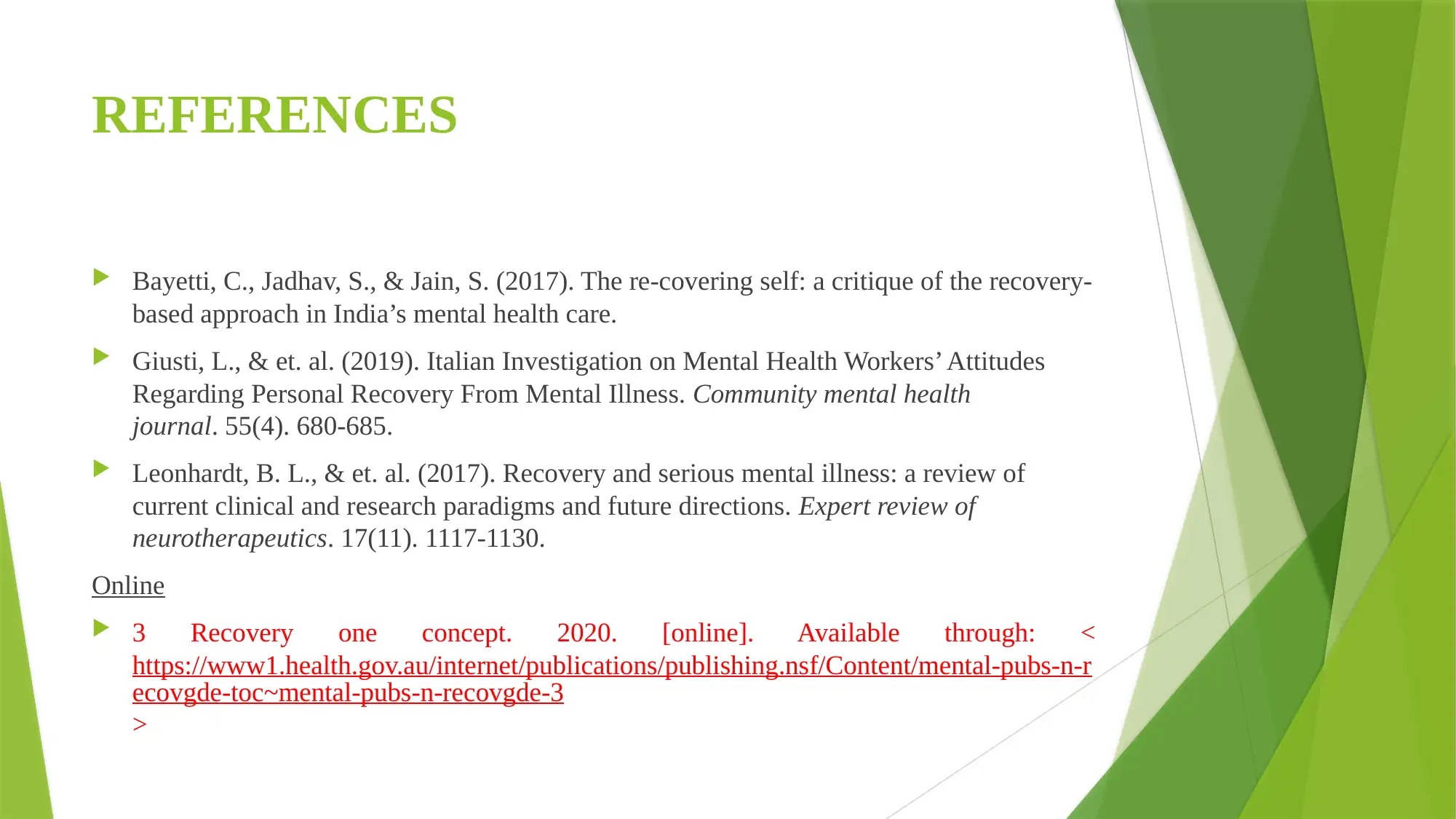





![[object Object]](/_next/static/media/star-bottom.7253800d.svg)